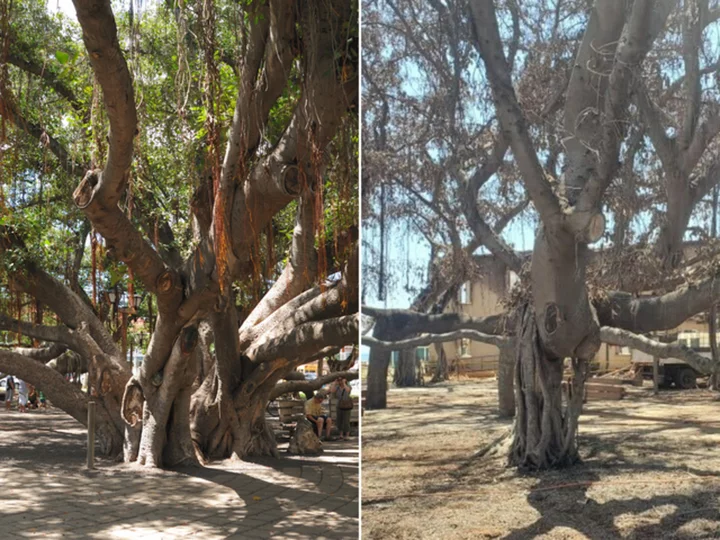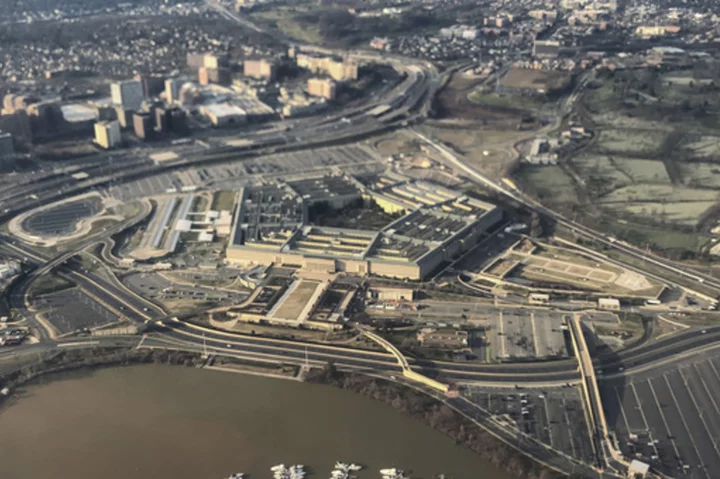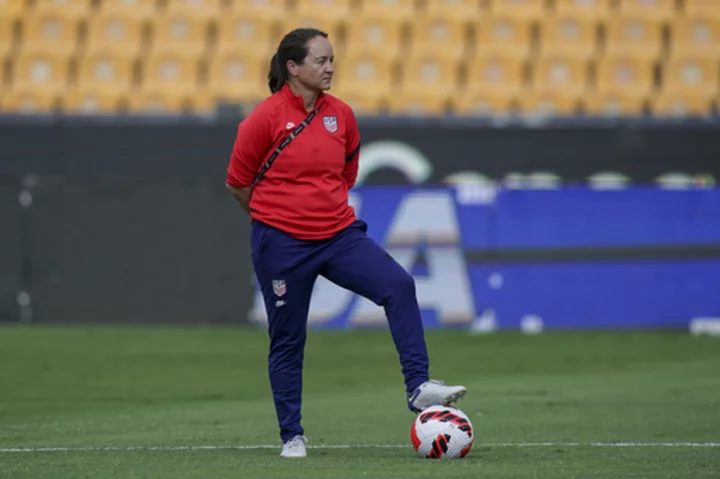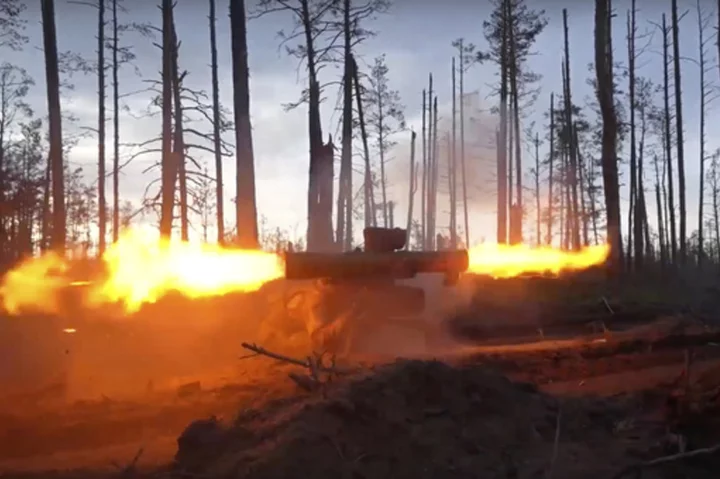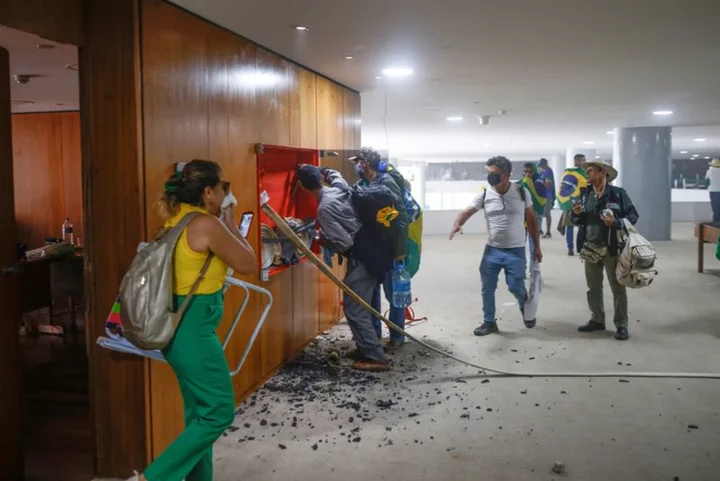A huge banyan tree charred by the wildfires in Maui is sprouting new green leaves, giving hope all was not completely lost in the flames.
The 150-year-old cultural landmark dominates the courthouse square on Lahaina's famous Front Street.
The tree was planted in 1873, and is the largest one of its kind in the US, raising more than 60 feet.
The historic tree, part of the fig family, gives the illusion of being multiple trees due to its ability to develop accessory trunks from its roots, allowing it to spread out. It currently has about 46 major trunks.
'A sign of new beginnings'
It is commonly referred to as a gathering place for Lahaina residents, serving as a hub for tourists, festivals, and even wedding proposals.
Landscaping business owner Chris Imonti said the banyan Tree has been an iconic figure in Lahaina for more than a century, and seeing the leaves grow means a lot to the community.
"People see it as a sign of hope," Imonti said. "A sign of new beginnings."
Imonti has been working with Hawaii's state arborist, Steve Nimz, along with a team of volunteers to help preserve the Banyan tree.
"I would say about 75% of the tree right now is showing new growth, and we're really happy about that," Imonti said.
"The northeast corner of the tree got most of the heat so we're still monitoring that part of the tree pretty closely," he noted.
During the fire, the soil became extremely hot, which altered the ground's ability to absorb water, according to the landscaper.
Volunteers and local contractors have been pouring more than 5,000 gallons of water on the tree daily, in an attempt to rehydrate the roots.
And compost tea, an organic liquid compost nutrient, is helping water penetrate the scorched dirt.
"We put that on the soil to stimulate root growth as well as create a very stable soil structure," Imonti said.
'The tree is like your only compass in town'
The wildfires destroyed most of Lahaina, leaving a community of more than 13,000 people with little or nothing to salvage. The flames burned down homes, businesses, and displaced more than half of Lahaina's residents.
"Now, when you look around, you don't have any landmarks," Imonti told CNN. "The tree is like your only compass in town."
The banyan tree isn't the only tree local volunteers are working to save.
"We're also taking care of a lot of other historical trees in Lahaina," Imonti added.
One of them is the Kumu 'ulu tree, which is connected to the legend of Ku, the Hawaiian god of farming and fishing, who transformed into a Kumu ulu tree to feed his family during a famine. The tree produces the breadfruit, 'ulu, a popular island nutrient.
"But most of them have been charred pretty badly," Imonti noted. "I mean, everything is gone," he continued. "We're running around watering a few trees in town and that's all that's left."
Meanwhile, residents are returning to the scorched grounds where their homes once stood.
"Everybody really has to rebuild their lives," Imonti said, which comes with "a whole other wave of sadness for families."
And while preserving the trees is important to the island's culture and peace of mind, Imonti acknowledged it is not a top priority for many locals at the moment.
"I think the tree is the last thing on a lot of people's minds right now," the landscaper admitted.
But he hopes the tree "can be a good vehicle for change," and continue to be a sign of hope for the long road of recovery that lies ahead of Lahaina.
The town "has to be redesigned and it's gonna take years," Imonti told CNN. "Give us time to heal and hopefully this tree will come back to life and we can start moving forward in a positive way."

